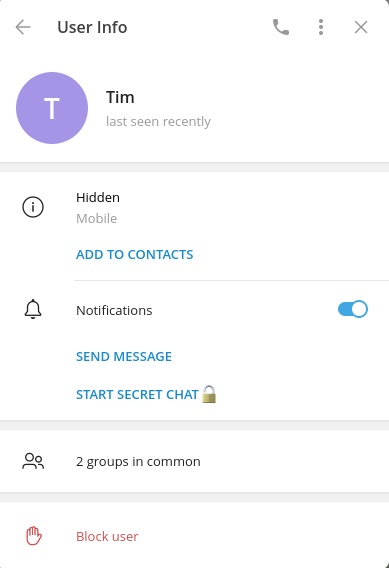The campaign has been funded with 2.2 ETH which is equivalent to 0.15 BTC (turned out it's impossible to fund campaigns with BTC on Gitcoin). The proof of funds is available in the invoice attached to the campaign available at https://gitcoin.co/issue/marcovelon/tdesktop/2/100026398
UPDATE 04/2022: the campaign has been withdrawn from Gitcoin because their platform is totally broken. The funds distribution will be performed manually by me after completion of steps written in the first post. The current funding is 3 ETH and doesn't limit this only to 1 coder.

This issue is a continuation of https://github.com/telegramdesktop/tdesktop/issues/871 and https://github.com/telegramdesktop/tdesktop/issues/16835 and is dedicated to the code bounty campaign related to lack of implementation of a Secret Chat feature (end-to-end encryption in private messages) in Telegram Desktop.
The objective is to implement the Secret Chats feature into this Telegram client: https://github.com/telegramdesktop/tdesktop
It is possible to do it with 3 different ways (but not limited to):
Migrating tdesktop to TDLib/Including TDLib to Telegram Desktop and using its Secret Chat API partlycomment from @lukejohnsonrpThis code bounty doesn't limit the programmer to any specific way of implementation, as soon as the final result will make possible to use Secret Chats on the open source Telegram Desktop (tdesktop) client on Linux and Windows in the exactly same way as it's done in mobile clients.
UPDATE 04/2022 / Funds distribution scheme:
There will be 3 payouts based on completion of the following stages:
Estabilishing Secret Chats via DH key exchange (ability to send and accept Secret Chat requests)[COMPLETE] in https://github.com/sergiotarxz/tdesktop/commit/41fcaa85159941b306eda754fd69c026aafc012dAbility to send and receive encrypted messages in estabilished Secret Chats[COMPLETE] in https://github.com/sergiotarxz/tdesktop/commit/41fcaa85159941b306eda754fd69c026aafc012dThe developer(s) will receive 1 ETH for completing one of the stages from the list above, totalling 3 ETH for all stages. The source code should be available and compilable.
The adjacent functionality such as deleting and configuring Secret Chat options can be done during any phase of the work progress described in the list above, however it must be done before or with 3/3.
I have created a verified signature for my Ethereum address containing the funds for this issue: https://etherscan.io/verifySig/4431 (https://etherscan.io/address/0xd19ee4a49b9214c4c22694bb01f225baf35f6efc)
Any voluntary donations are welcome. You can send them to the address above.
My email for communication is marcovelon@protonmail.com
CURRENT PROJECT FUNDING:
The overall funding now is 13000 USDC and 1.18 ETH (~3929 USD)